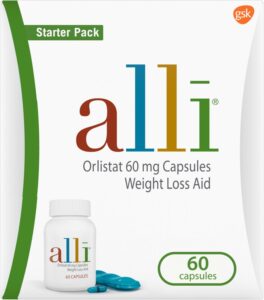To win the battle of SEO, you have to stay ahead of your opponent. SEO is a dynamic aspect of marketing which evolves continuously. To accomplish competitive dominance, you have to be aware of how SEO industry is changing and adjust your content and strategy according to the updates. Here are few latest updates on SEO:
Accelerated Mobile Pages (AMP)
Accelerated Mobile Pages (AMP) is a Google-initiated project for websites to load quickly on mobile devices. Google made this standard as one of the search engine ranking factors. This update is about making your website mobile friendly as search is rapidly shifting from desktop to mobile. We say “patience is the virtue” but not when it comes to website loading times. Nearly 40% of users will abandon the website if it doesn’t load in less than 3 seconds, according to the data from Kissmetrics. AMP will help to cut down loading times on mobile. So start optimizing your sites for mobile users.
Machine Learning
Machine learning is the ability of search algorithms to learn and update themselves automatically according to users phrases of the query. Google is implementing machine learning with RankBrain, to improve “search quality” and for higher user satisfaction. RankBrain is Google’s algorithm and third most important contributor to the results of the search query. Therefore, optimize for search queries by a human from the perspective of human intuition.
User Experience Optimization
A critical part of SEO is User Experience Optimization. Everything we do in the realm of marketing revolves around “user”. So, user experience optimization is nothing but focusing on users and to provide them with the best experience. Search engines collect related data when there is a query. Algorithms work on gathered data to give searchers what they are looking for. This makes it clear that websites that do a good job to meet searcher’s queries will land on the first page of search results. Hence, optimize your website for searchers rather than search engines. Consider the key points “searcher language” and “searcher intent” while optimizing for the best practice of user experience optimization.
Progressive Web Apps (PWAs)
According to developers at Google, Progressive Web Apps are installable and live on the user’s home screen without the need for an app store. Progressive Web Apps are more reliable, fast and engaging. PWAs provide the app-like user experience. They load instantly even in poor network conditions, respond fast to user interactions and feel like a natural app on the device. PWAs are the next-generation online activity of users. From SEO’s perspective, a PWA of your website is more convenient for users.
Local Search/Mobile Search
Considering the rapid shift of search from desktops to mobiles, local marketing on mobile seems more promising. It’s going to be an increasing habit of people searching on the go more and more. So, optimize your website for local mobile searches.
Video sharing
One short video is worth much more than a bunch of text. The video is more effective in engaging audience compared to text ads. The effectiveness of videos is because 90% of the information our brain picks up as visuals. So it is easier for us to remember what we watch than what we read. Video marketing and video blogging are going to be the trend in coming days.
Virtual Reality (VR)
Virtual reality is going to be the next platform for user experience. Just like internet and smartphone revolutions, next will VR applications. The whole idea of VR, 360-degree surroundings improves visual transmission. VR allows users to interact with the 3-D environment. Social networking platforms like Facebook has already moved towards VR with live 360 videos. Virtual reality content will be the bait of the future soon.
Voice Search
Voice search is going to be the prominent type of search very soon. Conveniences of voice search such as fast, hands-free, multi-tasking making it more and more irresistible. Great improvements in speech recognition made voice search smooth for users. Optimizing your site for voice search queries will help you win the race. Focus on long tail keywords, add pages with FAQs (with questions begin with what, why, who, where, when and how) and keyword research on conversational queries.




